UNDERSTANDING THE PARROT
Text by Verna Shannan
In order to understand your pet bird it is useful to know a little about how parrots operate in the wild. Parrots are social creatures and most live in flocks. They are reared and taught how to behave by their parents. The young all play together in a creche or nursery environment and learn from each other while one or two adults keep an eye on them.
If your bird was hand-reared it has learned everything it knows from the person or persons who reared it. There will be much that they still need to learn. When a bird has imprinted on humans, it will actually believe it looks like us and is like us. However, it will still have many of its wild instincts. This is where the confusion starts.
If your parrot was wild caught it will know it is a bird, will miss its family, flock and freedom. The socialisation skills it would have learned from its parents and the flock will be either completely lacking or will have ended prematurely.
Many people believe that they can treat a parrot like a pet dog and will be disappointed and confused when they find that this does not work. Expert opinions about parrot intelligence vary but most agree that parrots are at least as intelligent as a three year old child and perhaps even as bright as a five year old. Of course the way parrots express this intelligence is very different from that of a child.
Parrots are as sensitive as a child and can be just as easily damaged emotionally. They are much more aware of body language than we are; this helps them to communicate with each other. It is impossible to fool your bird if you are saying one thing and thinking another because it will show in your body language. I try to spend five to ten minutes each morning with each of my birds, training a new behaviour. This keeps us all interested in each other. If I am in a rush or my mind is elsewhere they know and will refuse to co-operate because each wants my undivided attention.
Unlike a child or a dog, a parrot does not understand punishment, especially when it is of a physical nature. If you hit a parrot or threaten it will violence it will sincerely believe that its life is at risk. It will respond accordingly either with aggression or by trying to get away (i.e. fight or flight). The bird will lose all trust in you and will be terrified. Parrots have long memories. It will take much time and patience to win that trust back. As with human beings, you cannot build a relationship without trust.
Parrot chicks can be so cute and cuddly and it is very tempting to indulge their every wish. Perhaps we have feelings of guilt because we are keeping a beautiful creature cooped up, a creature that we think should be wild and free. We may try to compensate by letting the birds have the complete run of our homes. This will make things extremely difficult later when they reach sexual maturity. They will believe that they are in charge of this particular household and may even decide to drive you out of it. Alternatively they may decide that you are their partner, this being an exclusive arrangement and everyone else has to go, especially during the breeding season.
When the breeding season starts in the wild the adult pairs will separate from the other pairs. They become territorial and protective of their mate and their own breeding hole or nest. Usually when a parrot lets another parrot know that it has crossed its boundary the other parrot will retreat out of politeness.
When your tame parrot decides that you are its mate the bird does not understand why your human mate is breaking the rules by not leaving your exclusive territory. In sheer frustration, and usually with a hormonal rush, it will last out and bite your partner. If it cannot reach your partner the bird may bite you instead. This is called displaced aggression. The bird really has no control over this behaviour if it has not been taught that the rules are different in the human world.
Even worse, your parrot may decide that your partner is its mate, although you are the one who feeds and looks after it. The bird will often perceive the person who is tallest to be the highest in the pecking order and therefore the more desirable mate.
Parrots can be aggressive towards children as they perceive them to be very low in the pecking order because of their height. Children also tend to make sudden, rapid movements which upset the bird so it will want to chase them away.
If anyone shows a fear of the parrot it will often treat that person with contempt and aggression.
The way to avoid this type of behaviour is to teach the bird what is expected of it right from the start and to avoid letting your relationship with the bird come that of a mate. The relationship needs to be that of a parent or parents with an ‘adult child’. In the wild, a parrot would have been taught the rules and learned about boundaries. It would have a place in the pecking order of the flock and respect those above it. If you fail to provide this teaching the bird will be forever looking for those boundaries and pushing to see how far it can go.
A young parrot in the wild will naturally be inquisitive and want to test and try everything with its mouth, much like a human baby while it is teething. With parrots however, the urge to chew will always be there, they won’t grow out of it. This behaviour needs to be encouraged while the bird is in its cage by giving it fresh branches and toys to chew on at all times because a bored parrot is likely to go completely nuts and start chewing its feathers and eventually even its own flesh.
When the bird is out of its cage, on its play gym or t-stand it needs to be given something to chew on or to play with other than your fingers. Your parrot must be gently discouraged from chewing or even mouthing your fingers. The bird does not realise that the fingers are actually part of you and only wants to find out what that hard piece of bone is inside. This is why a pet parrot will often let you nuzzle it with your face but not touch it with your hands.
I believe that the bird actually thinks that your head is you and that you are sitting on top of something separate like a tree (your body). When a bird is allowed on your shoulder, it will think that it is sharing a perch with you. When you want to remove the bird and put it back in its cage it will let you know that it is not impressed.
When you ignore a bird’s signals, the bird will become confused and frustrated and will often bite you. If the bird’s eyes are higher than yours it will believe that it is superior to you. It will think it has more right to the perch than you have and will defend that right. Parrots instinctively understand ‘social climbing’ – they take it very seriously.
In the wild, if a predator or simply a loud noise frightens a parrot, it may warn its mate of danger by giving it a nip. This would not hurt the other bird because there are plenty of feathers above the skin. I was once holding a Sulphur-crested Cockatoo on my arm, close to my chest, when a car backfired; he instinctively nipped my face and drew blood. If I had not understood what was happening, I may have become angry with him.
You can avoid all of this by never, ever, allowing the bird on your shoulder and by not allowing it near your face when it may be startled or become jealous. This is less convenient for the owner because when your bird is on your hand or arm that is one hand you cannot use for anything else. So put the bird on a T-stand or play gym when you need both hands. This will be far better for the bird because it will not come to expect to be on your shoulder and therefore become a problem to you.
When a parrot is allowed to become a problem to its owner the bird will eventually be the one to suffer. I have seen this happen many many times.
Your parrot also needs to be discouraged from destroying your furniture and the rest of your home. Make sure that the bird does not have the opportunity to do this by not allowing it to run around on the floor. Keep the bird contained in its cage, on its play gym, T-stand or on your hand or arm.
In the wild, birds usually welcome the day with a morning chorus and see it out with the same enthusiasm. This is normal behaviour. If I ever have a parrot that does not behave in this manner, I know that all is not well and the bird needs attention. People need to take this into consideration before choosing a parrot because some owners (or their neighbours) do not appreciate the bird’s shrieks of delight.
Parrots call out to their flock when they are out of sight; this enables them to locate each other. Your bird will call to you when it cannot see you. If you shout at it to be quiet it will be very happy with that result and continue to call even louder. This behaviour can be modified but not extinguished. Speak quietly to your bird and only reply when it does the same. If your bird starts screaming for no apparent reason you will usually find that a hawk or a large bird of some sort is flying overhead. Your pet is only trying to warn you of the impending danger.
Knowing why your pet behaves the way it does goes a long way towards understanding and building a relationship with it. Parrots can be very frustrating creatures to live with and some days it may seem that your pet is determined to drive you crazy. I promise you that this is not the case, it is merely a mutual understanding. A parrot, unlike a pet dog, will not be subservient to or be ruled by a person, however, with patience, understanding and care it will be an extremely rewarding companion.
Acknowledgement
Many thanks to the Westaway family at The Pet Barn in Nerang, Queensland, where I hope to conduct a ‘Pet Parrot Preschool’ in the near future. They allowed me to disrupt their busy shop and take the photographs which appear in this article.
Recommended reading A Guide to Pet and Companion Birds and Handbook of Birds, Cages and Aviaries.
Information supplied by (c) Currumbin Valley Vet Services August 2010
FAQs
Hand-reared parrots learn everything from their human caregivers and may imprint on humans, believing they are like us. However, they still retain their wild instincts. Wild-caught parrots, on the other hand, know they are birds and may miss their family, flock, and freedom. They may lack socialisation skills they would have learned in the wild.
Parrots are different from dogs in their intelligence, sensitivity, and understanding of body language. They do not understand punishment, especially physical, and can react with aggression or fear, losing trust in their human caregivers.
When parrots reach sexual maturity, they may start to believe they are in charge of the household. They may become territorial and protective, especially during the breeding season, and may show aggression towards other members of the household.
Parrots are naturally inquisitive and like to test and try everything with their mouths, much like a teething human baby. This urge to chew is always present in parrots, and they should be provided with fresh branches and toys to chew on to prevent destructive behaviour.
Parrots in the wild call out to their flock when they are out of sight to locate each other. Your pet parrot may call out to you when it cannot see you. Shouting at it to be quiet may only encourage louder calling.
Parrots perceive being on your shoulder as sharing a perch with you. If you try to remove it, it may feel threatened and bite you. It’s recommended to avoid letting your parrot on your shoulder to prevent this behaviour.
Understanding your parrot’s behaviour and treating it with patience and care is key to building a good relationship. Establishing boundaries and teaching it what is expected can help create a rewarding companionship. To get advice and assistance with training your parrot, look for “exotic vet clinics near me” to find an experienced professional who can help you.
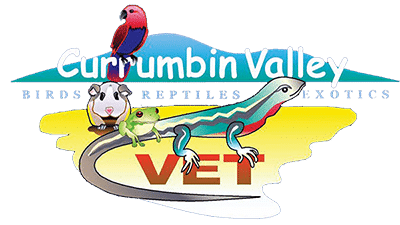
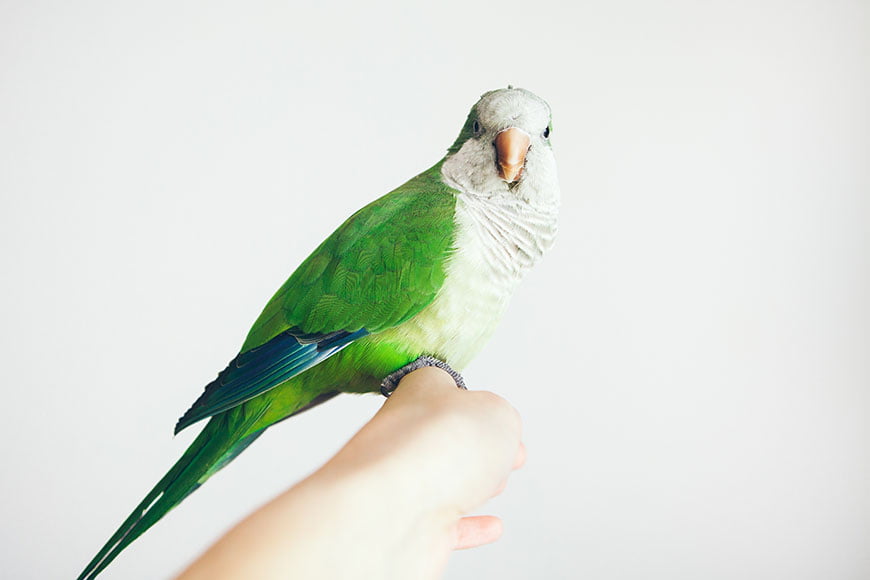

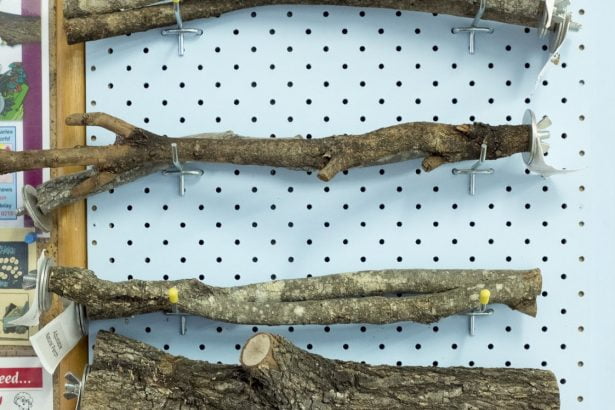
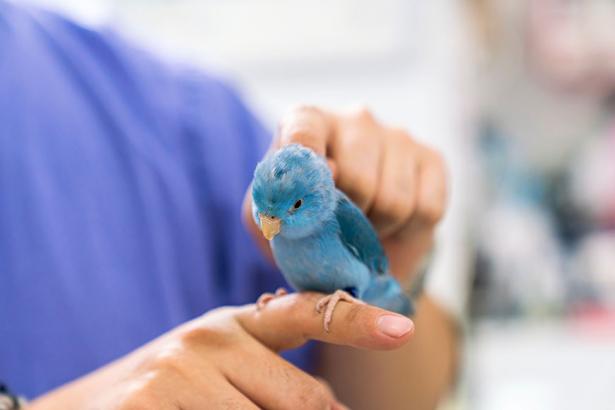
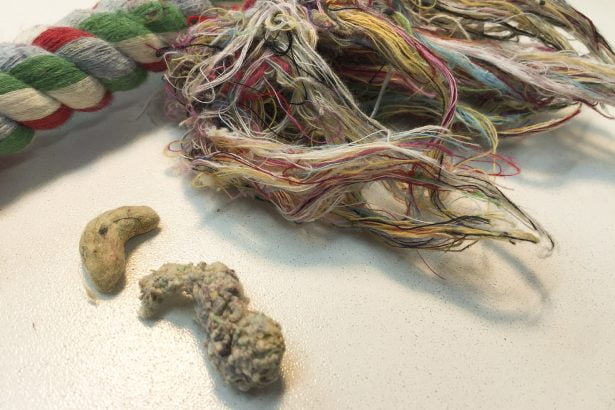
Looking for someone who could provide an hour of there time to give us some tips and pointers with regards to training our parrots.
Thanks
(Burleigh Heads)
This Article was very helpful. I was wondering why my two pet budgies would be yelling at me randomly, in the mornings mostly. We live in a very tree filled suburb with lots of predators. I shall now calmly walk over and thank my birdies for the warning and not tell them to shooosh. However, I an Not sure if the rest of the family will Appreciate this as much as me!